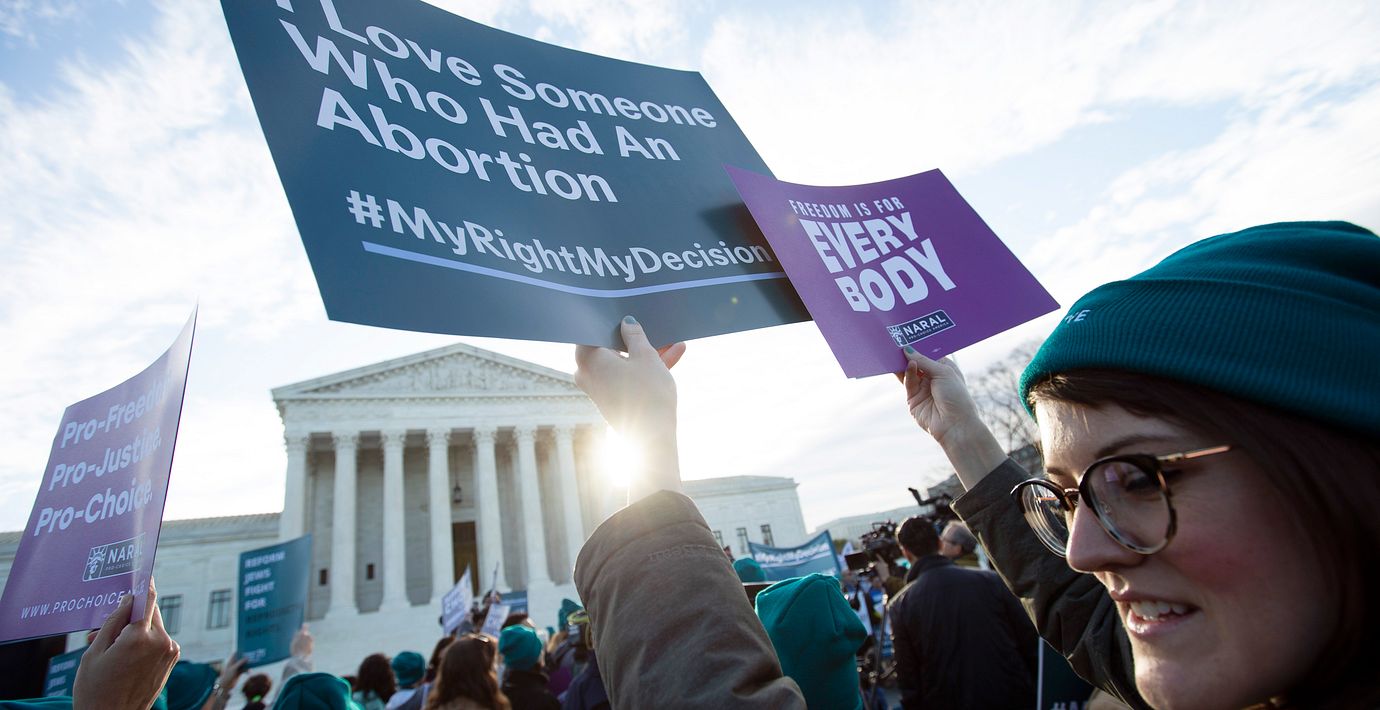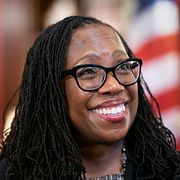
Flera åklagare: Vi kommer inte driva åtal om aborter
Över 60 amerikanska åklagare har under onsdagen deklarerat att de inte kommer att driva åtal som rör abort – även om det skulle strida mot Högsta domstolens beslut, rapporterar Washington Post.
Uttalandet kommer i samband med senatens utfrågande av Amy Coney Barrett som blivit nominerad till en plats som domare i Högsta domstolen.
Hon har hittills svarat undvikande på frågor som rör aborträtten. Många tror dock att hon kommer att rösta för att upphäva 1973-års beslut (Roe v. Wade.) om laglig abort i hela landet om frågan skulle nå Högsta domstolen.
bakgrund
Roe v. Wade
Wikipedia (en)
Roe v. Wade, 410 U.S. 113 (1973), was a landmark decision of the U.S. Supreme Court in which the Court ruled that the Constitution of the United States protects a pregnant woman's liberty to choose to have an abortion without excessive government restriction. It struck down many U.S. state and federal abortion laws, and prompted an ongoing national debate in the United States about whether and to what extent abortion should be legal, who should decide the legality of abortion, what methods the Supreme Court should use in constitutional adjudication, and what the role of religious and moral views in the political sphere should be. Roe v. Wade reshaped American politics, dividing much of the United States into abortion rights and anti-abortion movements, while activating grassroots movements on both sides.
The decision involved the case of a woman named Norma McCorvey—known in her lawsuit under the pseudonym "Jane Roe"—who in 1969 became pregnant with her third child. McCorvey wanted an abortion, but she lived in Texas, where abortion was illegal except when necessary to save the mother's life. She was referred to lawyers Sarah Weddington and Linda Coffee, who filed a lawsuit on her behalf in U.S. federal court against her local district attorney, Henry Wade, alleging that Texas's abortion laws were unconstitutional. A three-judge panel of the U.S. District Court for the Northern District of Texas heard the case and ruled in her favor. Texas then appealed this ruling directly to the U.S. Supreme Court, which agreed to hear the case.
In January 1973, the Supreme Court issued a 7–2 decision ruling that the Due Process Clause of the Fourteenth Amendment to the U.S. Constitution provides a "right to privacy" that protects a pregnant woman's right to choose whether or not to have an abortion. But it also ruled that this right is not absolute, and must be balanced against the government's interests in protecting women's health and protecting prenatal life. The Court resolved this balancing test by tying state regulation of abortion to the three trimesters of pregnancy: during the first trimester, governments could not prohibit abortions at all; during the second trimester, governments could require reasonable health regulations; during the third trimester, abortions could be prohibited entirely so long as the laws contained exceptions for cases when they were necessary to save the life or health of the mother. The Court classified the right to choose to have an abortion as "fundamental", which required courts to evaluate challenged abortion laws under the "strict scrutiny" standard, the highest level of judicial review in the United States.Roe was criticized by some in the legal community, and some have called the decision a form of judicial activism. In 1992, the Supreme Court revisited and modified its legal rulings in Roe in the case of Planned Parenthood v. Casey. In Casey, the Court reaffirmed Roe's holding that a woman's right to choose to have an abortion is constitutionally protected, but abandoned Roe's trimester framework in favor of a standard based on fetal viability, and overruled Roe's requirement that government regulations on abortion be subjected to the strict scrutiny standard.
Omni är politiskt obundna och oberoende. Vi strävar efter att ge fler perspektiv på nyheterna. Har du frågor eller synpunkter kring vår rapportering? Kontakta redaktionen


